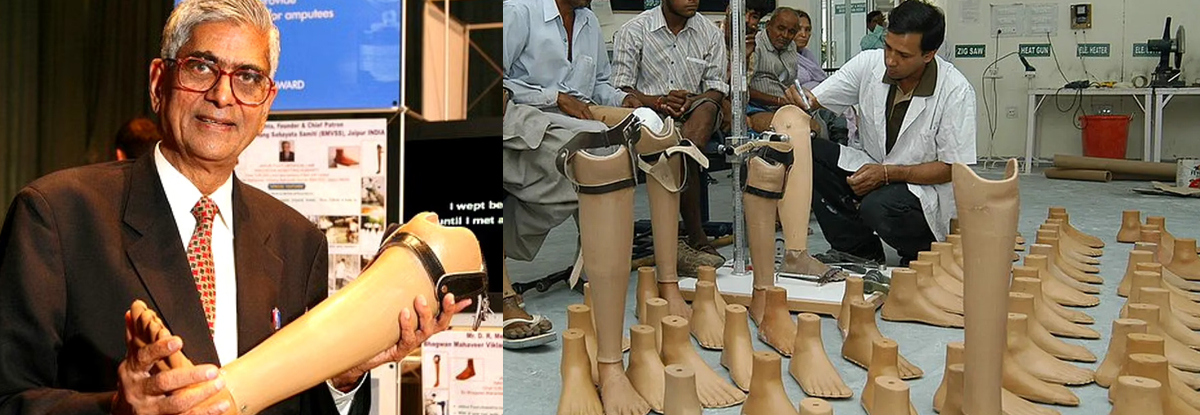A DATE WITH DR DEVENDRA RAJ MEHTA
Forty-five years ago, in Rajasthan, a young Indian Government officer, Devendra Raj Mehta, suffered a near-fatal car crash. Among other injuries, his left leg had been broken in forty-three places and it was only the skill of his surgeons that saved it from being amputated. While in the hospital, he read the biography of the legendary bilateral amputee pilot of the Second World War, Douglas Beddar, entitled ʻReach For The Skyʼ, a saga of courage and rehabilitation. He also read the books of the great humanitarian, social worker and Nobel laureate Dr Albert Schweitzer whose following words left a permanent imprint on him, ʻLet us join the fraternity of those who bear the mark of pain.ʼ
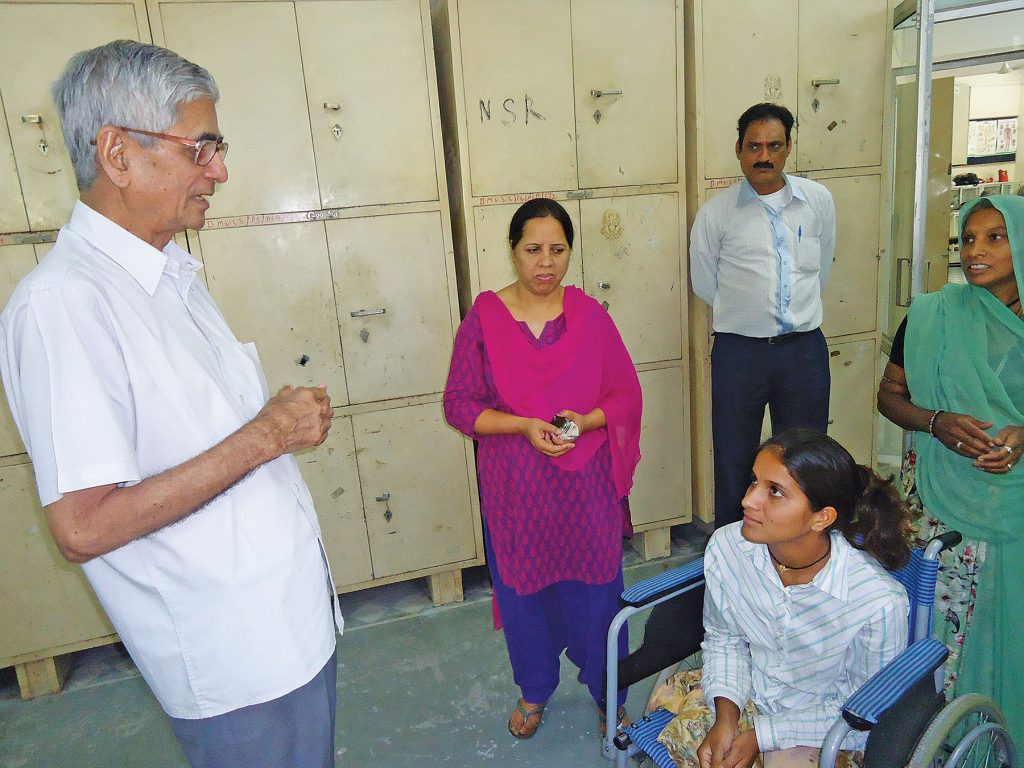
As he recovered, his gratitude made him think about the many people who were not as fortunate. He vowed to someday help them. And thus, in 1975, the Bhagwan Mahaveer Viklang Sahayata Samiti (BMVSS) was set up in Jaipur ‒ a secular, non-religious, non-governmental, non-political, non-sectarian, non-regional and non-profit organisation to help the physically challenged, particularly the financially weak and underprivileged. BMVSS, also known locally as the Jaipur Foot Centre, gives artificial limbs free of charge to anyone who needs one, and helps restore dignity and self-esteem to people who would otherwise be forgotten by society. So far, the organisation has transformed the lives of over a million amputees all over the world.
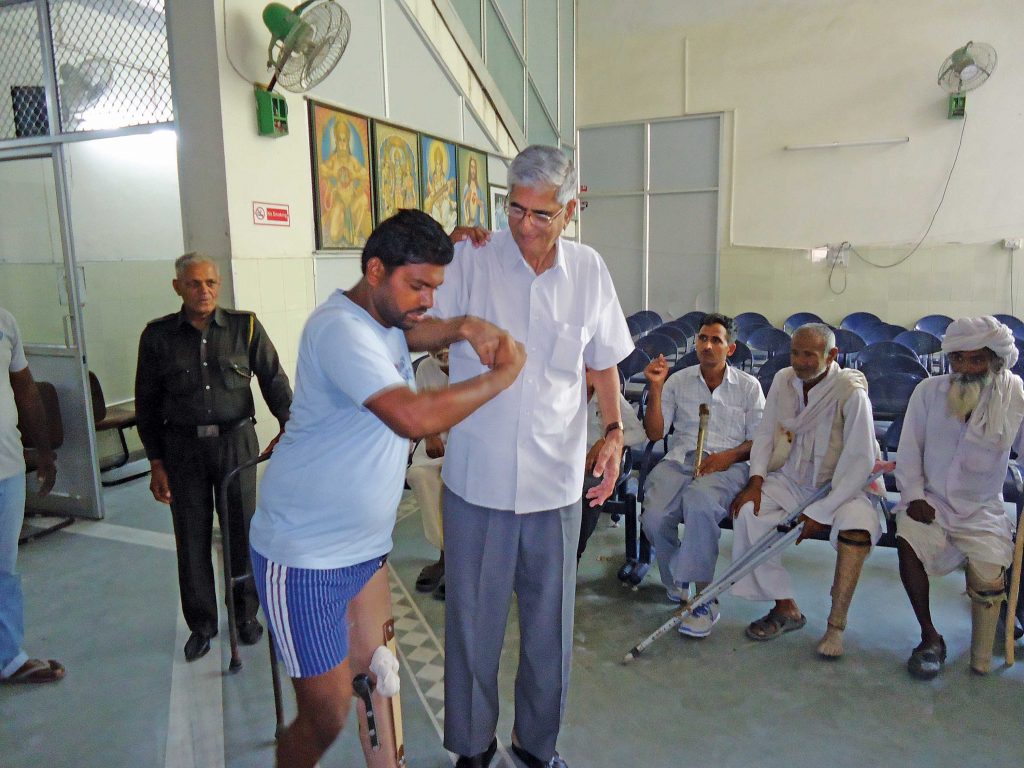
As Dr Mehta says, “People come here from all over India to get new limbs. Anyone can turn up without an appointment. Everyone is seen straight away and is treated with dignity and respect. After being fitted with a new leg, which, incredibly, can be done in just a few hours, most people can walk out and go home the same day. Many who come here are extremely poor, but they donʼt have to pay for anything. Everything is free, including lunch, and, if necessary, a bed for the night. They are even given their bus or train fares to go back home! The combination of using simple, low-cost technology together with a speedy, efficient system and a humane attitude towards the patients can achieve the same result as expensive high-tech solutions that cost a hundred times as much, enabling self-esteem to be restored to millions of sufferers ‒ people who, in many cases, had lost all hope.BMVSS allows them to regain their livelihoods and once again become productive members of society.”
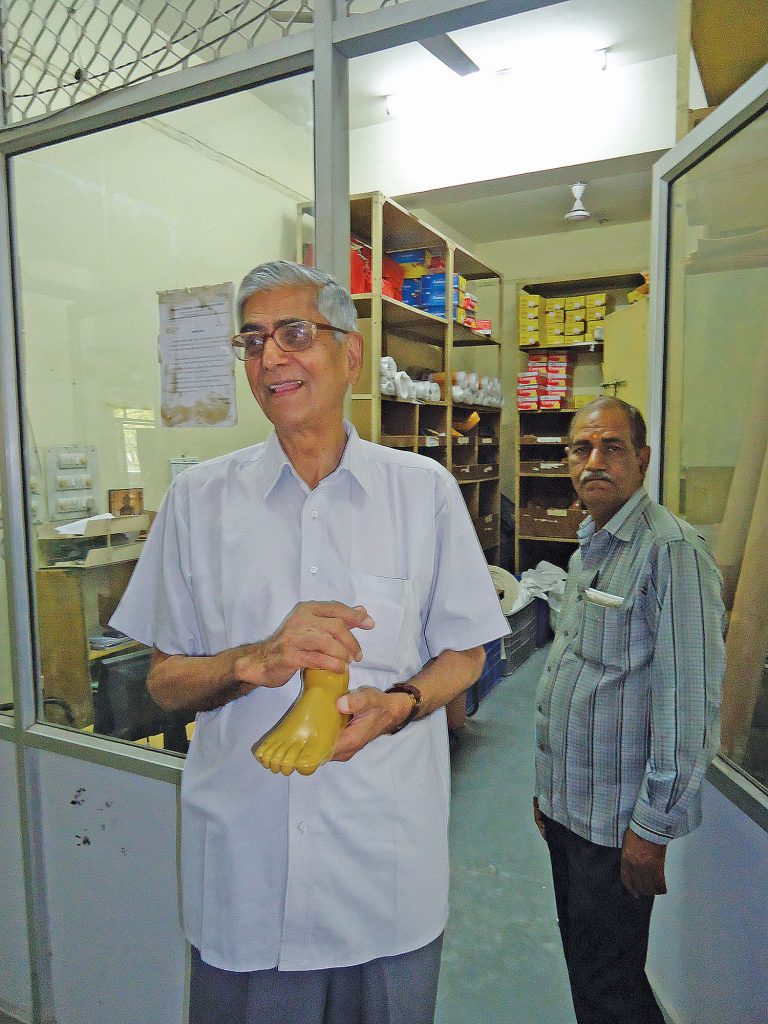
Dr Mehta reiterates, “Every morning, streams of people arrive at the Centre, many having made long and arduous journeys. The lucky ones arrive on crutches, others on little carts like skateboards. Some are often carried by able-bodied family members. No one can afford a wheelchair. They come by any means they can, because they have heard that this is where they will get free new legs. BMVSS has its doors open to Muslims, Hindus, Christians and Sikhs; farmers, students and rickshaw-wallahs; girls and boys, men and women. Some had lost limbs from cancer or diabetes, many from gangrene caused by inadequate medical facilities. But by far the most had met with traffic or train accidents. Getting a new leg for free can indeed feel like a miracle.”
For almost forty years, Dr Mehta has completely devoted his life to the BMVSS. He is at the Centre every day, except Sundays, meeting and listening to every single person who comes for help. And he does not just give them mobility ‒ he wants everyone to have the dignity of financial independence, so he provides items such as sewing machines and snack-stall kits, enabling men and women to earn a living. A kind and humble man, his philosophy of frugality extends to his own life. He eats simple food and drives a Tata Nano, the cheapest in the world. As he says, “What is a life for if I donʼt live for others?”
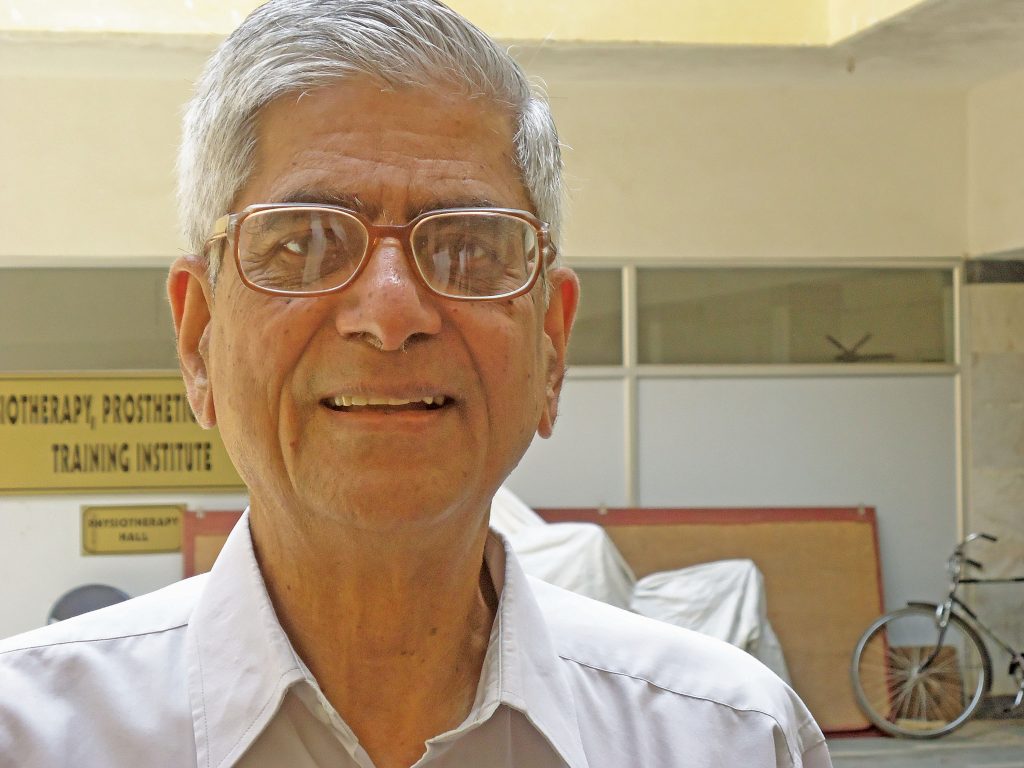
“My father passed away when I was five years old. I have a very hazy picture of him in my mind. My uncles brought me up in their home in Jodhpur. My mother had no money but she was most charitable. I would visit an orphanage near our home and that is how I first discovered the power of ʻCʼ. This power is nothing but compassion! People are innately compassionate but they are afraid to show it. The minute you get over this initial inhibition, the sky is the limit! There have already been several enhancements in the Jaipur Foot since it was first designed. Among these, a major improvement is the use of a special polyethylene composite made by Dow Chemicals, which helps make the foot-piece lighter and more malleable. People often ask us why the Jaipur Foot has not been patented. We believe that if we patent it, we will be restricting its use. It is an open technology and allows people to copy it. While this gives greater access to those who need it, we are discovering that there is a downside. Sometimes, manufacturers are producing the prosthetic with total disregard to quality; when this is promoted as the ʻJaipurFootʼ, we are blamed and get a bad name. This causes us concern and we have been thinking what we can do about it.”

